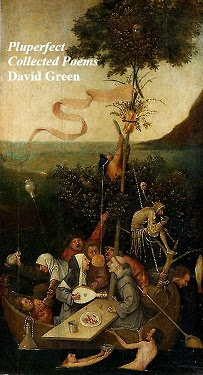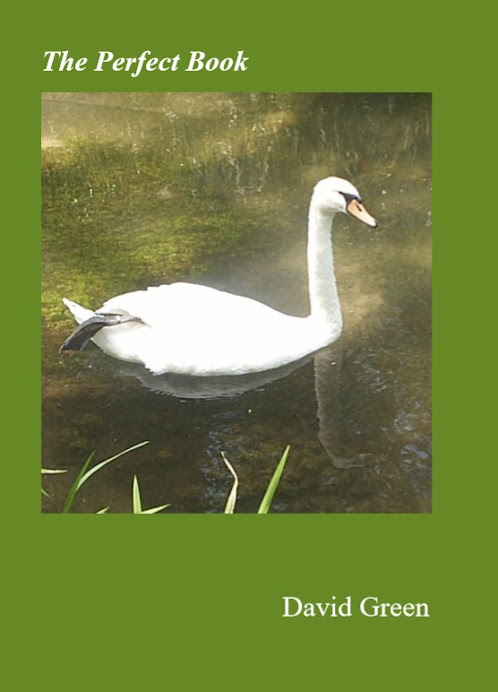David Green
- David Green (Books) is the imprint under which I publish booklets of my own poems, or did. The 'Collected Poems' are now available as a pdf. The website is now what it has become. It keeps me out of more trouble than it gets me into. I hope you find at least some of it worthwhile.
Also currently appearing at
Sunday 31 July 2022
Poet's Grave - Rosemary Tonks
Saturday 30 July 2022
Salvator Mei
Thursday 28 July 2022
T. Rex - Get It On
Not a sound from the pavement
Monday 25 July 2022
Sunday 24 July 2022
Signed Poetry Books - James Kirkup

This post first appeared in 2009 but, having added the label, it has jumped forward to re-date itself as today. That's fine. I'm surprised, but glad, to see how many times the blogspot metrics say it's been viewed in the last 13 years.
--
James Kirkup made headline news in the late 70's with a controversial poem which was by no means one of his better efforts. But there was more to him than that and this volume is an example of some of his more circumspect, controlled and thoughtful work.
He was, among other things, a great exponent of the haiku in English but the haiku in English in one of those subjects that I have to restrain myself from expressing a strong opinion on.
One thing Kirkup does best, though, is sign a book. This exquisite example is the neatest signature I have on a book of poems and it refers us back to an age where such style was valued.
Of All People
Sunday 17 July 2022
Mott the Hoople - All the Young Dudes
It's become traditional by now for commentators on 70's glam rock to cite the moment that David Bowie and Mick Ronson put their arms across each other's shoulders during Starman on Top of the Pops as crucial, ground-breaking and seminal. By all means, Starman was a tremendous record and for those not yet teenagers while The Beatles were still making records, for those capable of intuiting how great Bowie was in the early 70's, he was more important. Maybe a spaceman, maybe transgender, certainly 'art' and definitely a genius at what he did but the anthem he provided for that generation was All the Young Dudes, very graciously given away to workaday Hereford rock band, Mott the Hoople, who might having been touring and going to lots of places but were also going nowhere. It is a measure of Bowie's talent that he could give away such a song, like Lennon & McCartney had given away the likes of World Without Love and Step Inside Love.
Friday 15 July 2022
How Much Land Does a Man Need
Thursday 14 July 2022
The S.O.S. Band - The Finest
Portsmouth Poetry Society at 50
A Tollstory
Tuesday 12 July 2022
Finishing's Great
...would be the title I'd use when I finish Finnegans Wake. That isn't quite yet but I've finished the Readerr's Guide by William York Tindall and thus will gain no more understanding of it by reading the rest of the Wake itself although I will do that, all in good time, if only to say that I did. The Guide is from the library and due back soon, which was a good enough excuse to press on and finish the commentary I could follow rather than do it alongside the text I surely can't. I will sit and let the words of the second half of that wash over me in the same state of abstract oblivion that so much of it is set so maybe will get some of the artistic effect.
Saturday 9 July 2022
The Renaissance Choir, Protest Against Oppression
The Renaissance Choir, Protest Against Oppression, Church of the Holy Spirit, Southsea, July 9
Friday 8 July 2022
Men, and Women, of Letters
 The nagging doubts I've always had about reading other people's letters are only added to by how often it diminishes their reputation. It was the first volume of Larkin letters more than the Motion biography that made him so non grata for many. I never had as much time for Ted Hughes in the first place but his letters were mostly tragic, funny in places, forever in search of a new money-making project and a lack of awareness that the problem was him. My big hero, Thom Gunn, was reduced in status by the revelation that 'hedonism' and 'moral freedom' are only more positive ways of saying 'helplessly prmiscuous'.
The nagging doubts I've always had about reading other people's letters are only added to by how often it diminishes their reputation. It was the first volume of Larkin letters more than the Motion biography that made him so non grata for many. I never had as much time for Ted Hughes in the first place but his letters were mostly tragic, funny in places, forever in search of a new money-making project and a lack of awareness that the problem was him. My big hero, Thom Gunn, was reduced in status by the revelation that 'hedonism' and 'moral freedom' are only more positive ways of saying 'helplessly prmiscuous'.Wednesday 6 July 2022
Racetrack Wiseguy with some 7/1 advice.
Next Conservative Party Leader
Tuesday 5 July 2022
Nadine for Chancellor
Please, please, now that this story has gone this far, let's see it through.
Let's see Nadine Dorries appointed Chancellor of the Exchequer, just for one day, before this most absurd of Prime Ministers resigns tomorrow.
It's only a shame it's taken this long. Some of us knew before he was Prime Minister, before he was an MP and before he was Lord Mayor of London. That he was a disaster was the worst kept secret almost before he started and yet somehow the British Constitution, as was an 'A' level subject once, was derelict enough to allow itself to be his plaything.
Well, that's it. It's got to be over now and forever shame on everybody, Workington and Bolsover included, who ever gave him the time of day. You can't say we didn't try to tell you.
Elena Toponogova & Ensemble in Chichester
Israel in Egypt in Chichester
Some words about Sunday's Israel in Egypt by the Portsmouth Baroque Choir are here at Music in Portsmouth,















